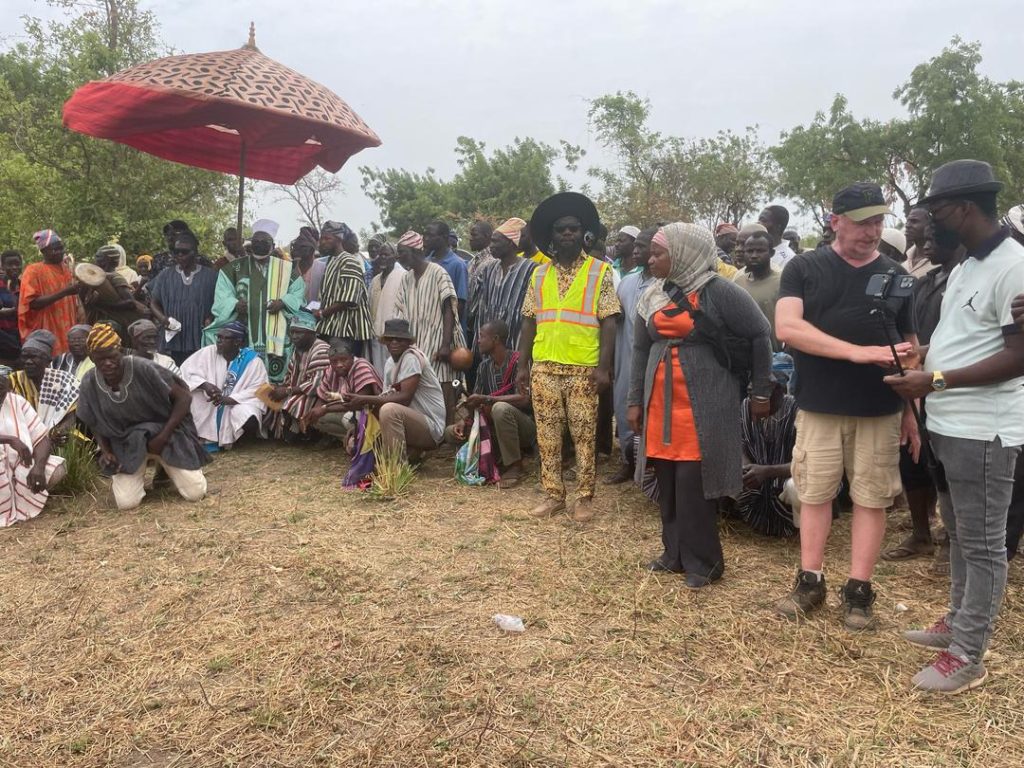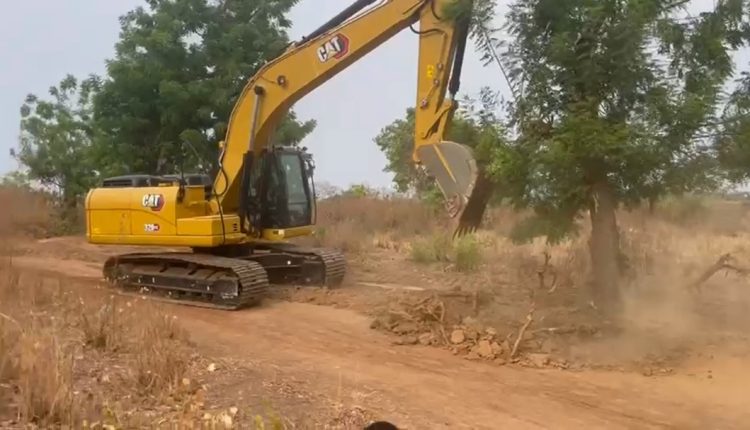To end the annual water crisis in Jerigu, Lahigu, and surrounding communities, the American NGO “Hope for Ghana” has commenced the reconstruction and expansion of the Jerigu and Lahigu community dam. This initiative, undertaken in collaboration with Naa Nyeb Nantonaa Mahamadu Bawa, the Paramount Chief of the Nanton Traditional Area, aims to alleviate the persistent water shortages that have plagued the communities for years.
Every dry season, the residents of Jerigu and Lahigu endure immense hardships due to severe water scarcity. Many are forced to travel long distances for water while livestock struggle to find drinking sources. However, thanks to the intervention of Hope for Ghana, this dire situation is set to change in less than a year.

The expansion project will see the dam’s capacity double from its previous size of four acres to eight acres, significantly boosting water availability. Speaking exclusively to ZAA NEWS’ Sulemana Alhassan Tarimbia, alongside Dr. Steve Greene and his vice, Mr. Senyo, the founders of Hope for Ghana revealed that the NGO will invest over GH₵3 billion in the project. They further disclosed that the funding is sourced entirely from the United States, including contributions from private donors, government affiliates, and churches.
As part of the project, the dam will be mechanized with a filtration system similar to the Ghana Water Limited. A pipeline network will be established to distribute water to neighboring communities, ensuring sustainable access to clean water. Additionally, a separate drinking area will be constructed specifically for animals to prevent water contamination.
Expressing their appreciation, the chief and residents of the community conveyed heartfelt gratitude to Hope for Ghana for their generosity and commitment to addressing their long-standing water crisis. The project, expected to be completed within eight months, is slated for commissioning in November.
This initiative stands as a beacon of hope for the people of Jerigu and Lahigu, exemplifying the transformative impact of collaboration between NGOs, traditional leaders, and local communities.
Source: Sulemana Alhassan Tarimbia/zaaghana.com


